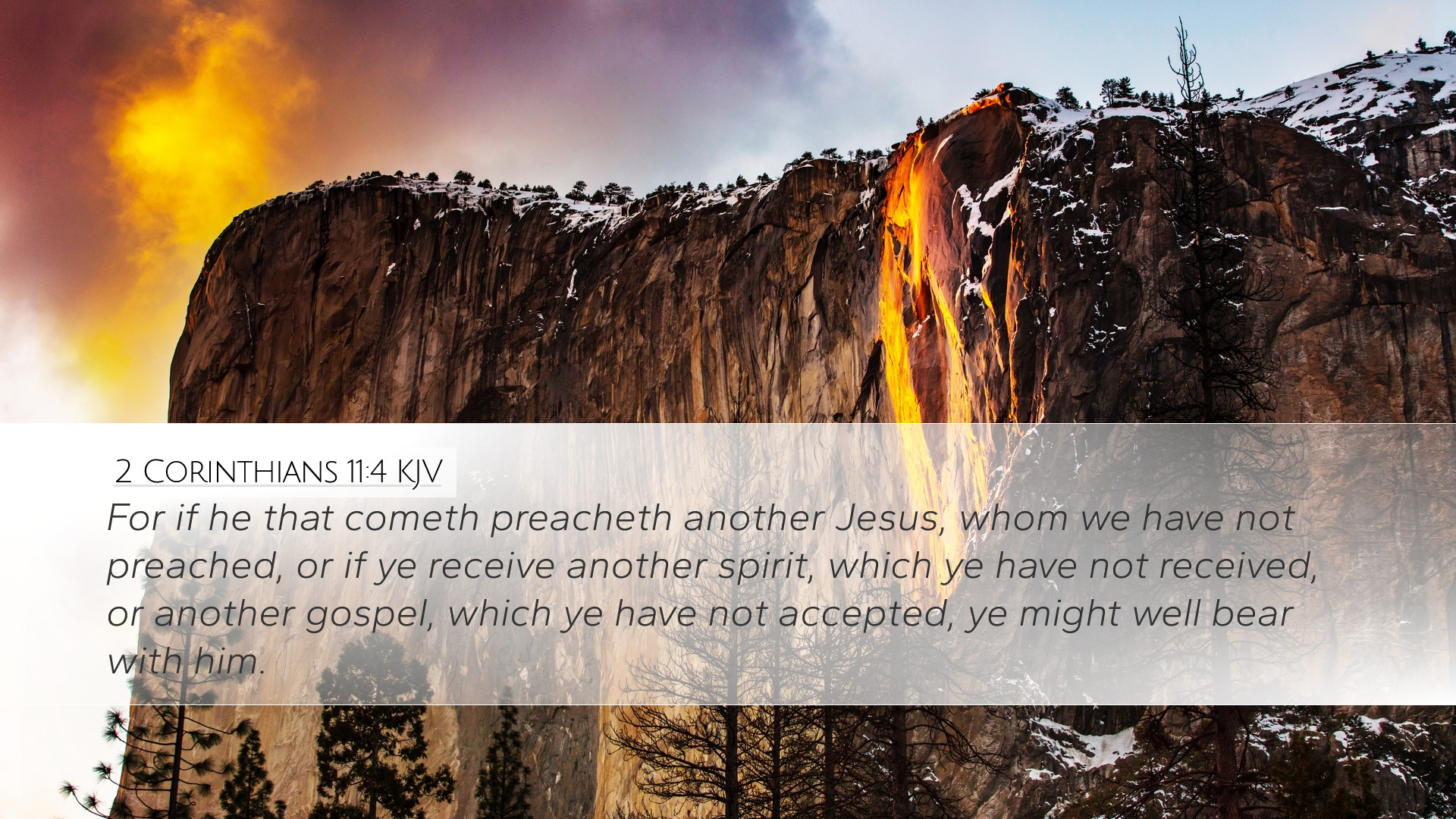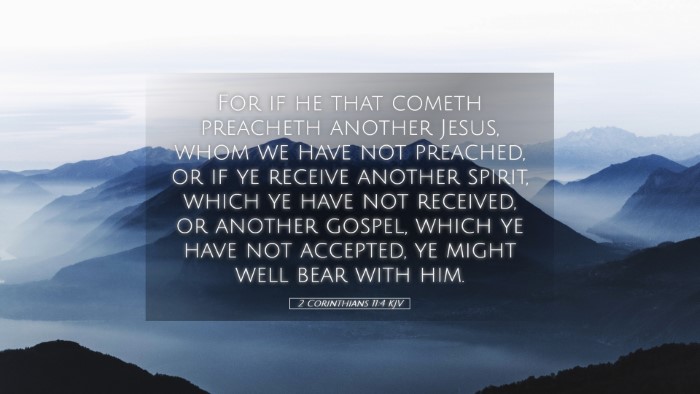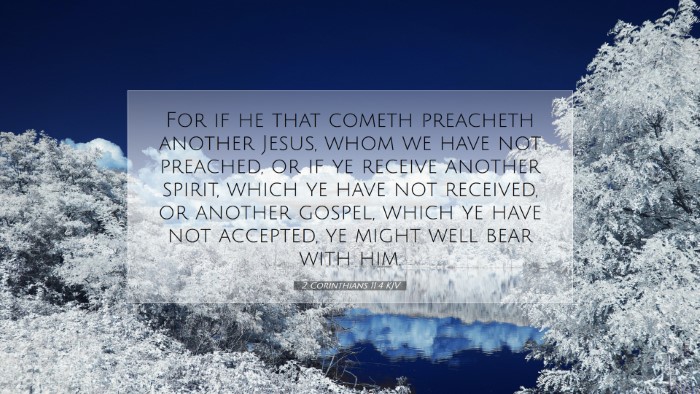Commentary on 2 Corinthians 11:4
Verse: "For if he that cometh preacheth another Jesus, whom we have not preached, or if ye receive another spirit, which ye have not received, or another gospel, which ye have not accepted, ye might well bear with him."
Introduction
The apostle Paul in this verse addresses the alarming issue of false teachers infiltrating the church at Corinth. This commentary synthesizes insights from various public domain sources including Matthew Henry, Albert Barnes, and Adam Clarke, providing a comprehensive view suited for pastors, students, theologians, and Bible scholars.
Contextual Background
In the broader context of 2 Corinthians, Paul defends his apostolic authority against false apostles who had come into the church. He expresses his concern over the spiritual fervor of the Corinthians and warns them against being deceived by those who preach a distorted message. This verse serves as a pivotal point in illustrating the nature of the false teachings entering the congregation.
Matthew Henry’s Insights
Matthew Henry emphasizes the gravity of embracing a 'different Jesus' or a 'different gospel'. He argues that the essence of Christianity is at stake when the purity of the message is compromised. Henry notes that the 'another Jesus' refers not to different acts, but to the perversion of the character and work of Christ. He elucidates the danger of being led away from the simplicity of the gospel into a false sense of spirituality.
Albert Barnes’ Interpretation
Albert Barnes explains that the phrase "if he that cometh preacheth another Jesus" indicates the peril of receiving teachers who distort Christ's identity. He highlights that the Corinthians were to be vigilant against doctrines that could lead them away from the true gospel. Barnes insists that the 'another spirit' alludes not only to different teachings in the church but to an entirely different doctrinal foundation that lacks the transformative power of the Holy Spirit.
Adam Clarke’s Commentary
Adam Clarke brings out the idea that Paul's concern is not merely doctrinal but existential; adopting a different Jesus or message could have profound implications on their faith and practice. Clarke points out that the 'another gospel' refers to any teaching that diverges from the foundational truths of Christianity. He underscores the necessity of discernment in the face of diverse theological claims, urging the necessity of evidence as rooted in apostolic teaching.
Theological Significance
This verse conveys significant theological implications for understanding the nature of Christ and salvation. Distorting the gospel message results in a diminished view of Jesus's divinity and the work of redemption. Insights from these commentaries harmonize to assert that the clarity of the truth is vital for genuine faith and practice.
Implications for the Church
- Discernment: Believers are called to discern the authenticity of teachings and to remain grounded in the true gospel.
- Preservation of Truth: The responsibility of church leaders is to uphold doctrinal integrity against misleading influences.
- Unity in Doctrine: The church should strive to maintain a united front based on sound doctrine, as differing gospels create division.
Applications
In application, pastors and church leaders need to emphasize teaching that is strictly aligned with Scripture. They must encourage congregations to engage with the biblical text critically and thoughtfully, fostering a community that values truth over popularity. Furthermore, the necessity for ongoing theological education is paramount, equipping both leaders and congregants to recognize and refute false teachings.
Conclusion
2 Corinthians 11:4 serves as a solemn reminder of the importance of adhering to the true message of Jesus Christ. The blend of insights from Henry, Barnes, and Clarke provides a rich resource for understanding the warnings Paul gives to the Corinthians. The call to discernment and fidelity to the gospel remains relevant today, urging believers to be vigilant guardians of the faith.


